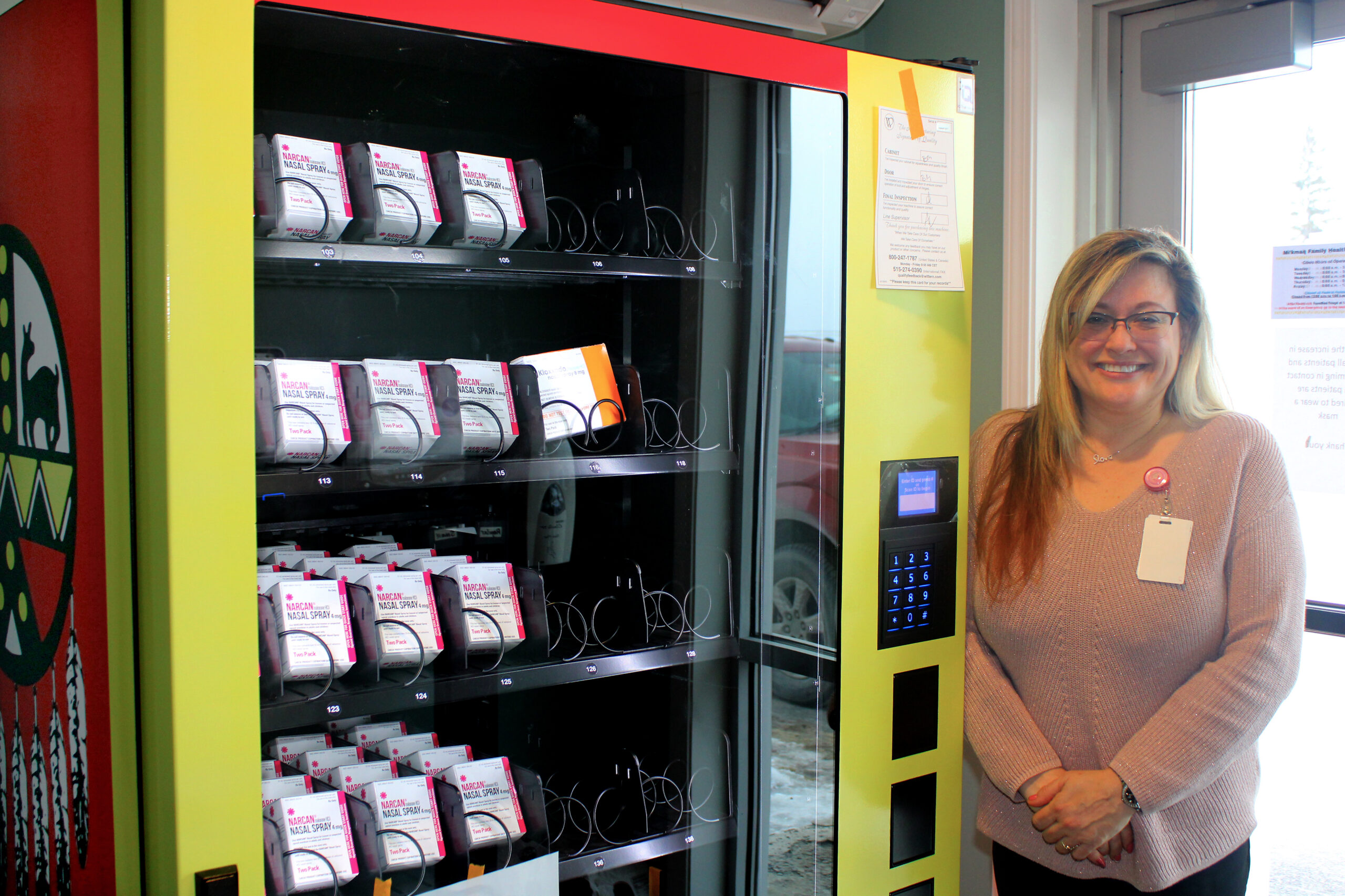
The Presque Isle-based Mi’kmaq Nation will soon have Maine’s first naloxone vending machine north of Portland.
The Mi’kmaq Health Department plans to unveil the device on March 1 and will make it available free to anyone in need.
Aroostook had the sixth highest number of overdose deaths among Maine’s counties in both 2022 and 2023, according to University of Maine data. Naloxone, also known by the brand name Narcan, can reverse overdoses from drugs like heroin, morphine, oxycodone and fentanyl, a synthetic opioid. Mi’kmaq health leaders hope the vending machine will prevent more people from dying.
“We give thousands of kits out each year, but we still think we can reach more people by giving them a way to access this medication that is anonymous,” Mi’kmaq Health Director Katie Espling said. “We want to take down barriers to people getting these life-saving medications.”
Maine saw 723 confirmed and suspected fatal overdoses in 2022, with 47 in Aroostook County, according to the University of Maine’s Margaret Chase Smith Policy Center. In 2023, the number declined to 607 statewide and 39 in The County. More than three-quarters of those overdoses were attributed to fentanyl or fentanyl-type drugs.
Recovery networks regularly host naloxone clinics and education, and a state law passed in June 2023 requires on-duty police officers to carry the medication with them. Maine’s opioid response plan seeks to increase public availability of naloxone, including over-the-counter sites and through the use of vending machines.
The vending machine will be set up in the southern vestibule of the Mi’kmaq Family Health Services building at 8 Northern Road in Presque Isle. The door will be unlocked 24 hours a day, seven days a week. Those needing access to the medication will use a code posted at the site to take a kit from the machine.
Maine has one other machine, located in the jail system in Cumberland County, Espling said.
Working to reduce harm from addictive drugs is part of the Mi’kmaq Health Department’s strategic plan and focus on healthy living, Espling said.
The University of Vermont Center on Rural Addiction led efforts to obtain the $12,000 machine, she said. Assistance came from the national Substance Abuse and Mental Health Services Association’s Tribal Opioid Response Grant and the Health Resources and Services Administration.
Located in Burlington, Vermont, the center aims to expand treatment capabilities in rural areas with resources, training and other assistance, according to its website.
People in rural communities often have barriers to obtaining naloxone. Clinics and pharmacies have limited hours, and naloxone can cost more than $40 when purchased over the counter.
“The rural areas are underserved and in need of free, easy access to life-saving medications, and with limited hours to distribute personally, it was clear that a naloxone vending machine would make sense in a rural community,” Espling said.
The device arrived in January. Health center staff worked with Maine’s Office of Opioid Response and its director, Gordon Smith, on the project as well, to make sure they could make naloxone available safely to all community members, Espling said.
The machine will hold about 300 naloxone nasal spray kits and will also contain Kloxxado, a form of naloxone that is doubled in dose, she said. Contact information for substance abuse resources and educational information will also be available.
This medicine is available to everyone, whether affiliated with a tribe or not, Espling said.
The Mi’kmaq Nation plans an unveiling ceremony at noon on March 1, with singing, drumming and prayers in native language.
“I think this sets a new standard by which we can offer harm reduction to our whole community,” Espling said. “We here at Mi’kmaq Nation want to provide a proactive, discrete and innovative way to make sure everyone living in Aroostook County has access to naloxone free of charge.”







